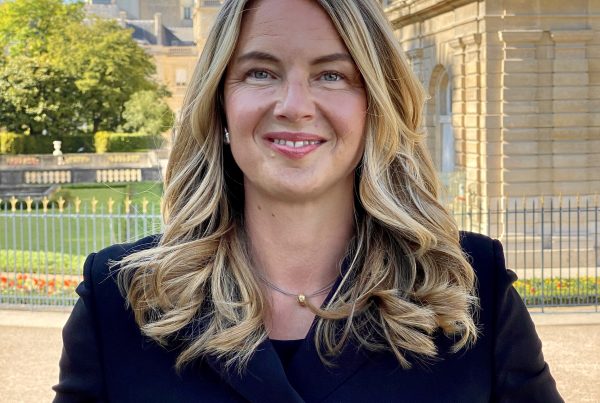Something went wrong in healthcare – systems around the world seem to be “broken” to a larger or lesser extent and while we diagnose “problems” (rising expenditures, worse outcomes, longer wait times, overworked staff… I could go on and on) there seems to be no urge, no lobby, no real impetus, and courage to get going and do something about it.
Why – considering all these smart and well-educated, dedicated and engaged individuals that are working for other people’s health and well-being – can’t we “get it done” or at least tackle the issues, step-by-step, to ensure that the common good of access to healthcare is not further jeopardized and rather improved? What would it take to come to terms with “reform” (if we take the political perspective) or “reorganization” (if we take the management/ business perspective)?
It would require two things to happen: 1) “out-winning” Darwin and 2) the sincere acknowledgement that healthcare is a common good.
The “survival of the fittest” – Darwin‘s theory of natural selection – refers to the process where characteristics beneficial for an organism‘s survival in its environment are more likely to be passed on to the next generation, while less advantageous characteristics are less likely to be inherited. “Out-winning“ Darwin implies that an individual, species, or group demonstrates the ability to thrive beyond the traditional expectations of Darwinian evolution. This could involve using technology, medicine, or cultural advancements to overcome limitations or challenges that would typically affect survival or reproductive success according to natural selection.
There exist many examples in medical history – such as the invention of penicillin, and other life-saving technologies, vaccinations, and medications – that have supported humankind in “out-winning” Darwin. But distorted incentives for innovation and an increasing dependency on ability-to-pay as far as access to care is concerned have reinvigorated the role of Darwinist survival patterns in many societies around the world. An example is the Inflation Reduction Act in the US which entices R&D to move from focusing on small molecules to biologics because protection times for drugs based on small molecules are less advantageous. However, small molecules play an important role in for example Alzheimer and ALS drugs because only small molecules can cross the barrier to the brain.
It is not only legislation that is fueling Darwinist developments in our societies, but also the ideology that a society’s healthcare system is based on. As a global healthcare observer (and also sometimes user) I learned early on that there exist two extremes of healthcare systems: those who provide access to a certain “average” level of services for pretty much the entire population (“utilitarian approach”) and those systems that always wish to “fly to the moon” and have the latest technology and innovation – but these services are accessible only to a small fraction of the population that has the ability and resources to pay for it (“excellence approach”). Most healthcare systems’ ideology can be located somewhere in between the two extremes.
Interestingly, political interventions to contain costs (as mentioned above) have implemented incentives that will inhibit important medical innovation (which was at least supporting excellence) while at the same time access to basic care has become either price-prohibitive or countries have continuously reduced the catalogue of covered services while keeping the price/premium constant. Or for certain drugs – as it is the case in Germany with respect to certain drugs for which contracts with rebates have been negotiated with large manufacturers – the population faces a shortage as manufacturers (not surprisingly) prefer to sell their available quantities in countries where they can get better prices. Consequently, care, drugs, and other health-related services have become less accessible.
Policy could maybe fix incentives and purchasing power will eventually recover but any governmental involvement requires the questioning of the ideology of its healthcare system and whether society acknowledges that healthcare is a common good. Could the purpose of a society be to out-win Darwin by acknowledging access to (comprehensive) healthcare services as a common good?
In fact, one of the many purposes of a society is to ensure the fulfillment of basic needs, survival, and mutual support. By living in societies, individuals can cooperate to meet basic needs more efficiently, share resources, and provide aid during times of need. As a member of the society, they might be less susceptible to Darwinist rules and benefit from its protective set-up.
However, different ideologies propose various primary purposes for society, often based on what they believe constitutes a “good life.” For instance, utilitarian philosophy might argue the purpose of society is to create the greatest good for the most significant number of people. In contrast, a libertarian viewpoint might argue society’s role is to ensure maximum freedom for individuals.
This explains why for example in 2008 when people were dying in waiting rooms of ERs in the US because they had not been treated fast enough and/ or had been refused preauthorized treatment there was an outrage in European newspapers and newscasts. In the US, this was less of a topic because it was consistent with the underlying culture and ideology: if you are successful, have a great job, have money, you deserve great care; if you have no or a poor job, make little or no money, have no insurance, you are left abandoned to your chances in the waiting room of an ER.
This was simply explained by a Swiss newspaper in a small mountain village where I was vacationing at that time. It is an extreme and cruel example but reflects the harsh reality if we consider that in 2022 66.5% of bankruptcies were caused directly by medical expenses, making it the leading cause for personal bankruptcy in the US. Despite several reforms aimed at making healthcare more accessible and promoting a change in the perception of healthcare as a common good, the “have-nots” struggle not only to have access to healthcare but the situation also impacts their financial wellbeing and other parts of life.
There exist also good examples where healthcare organizations in the US invested in social care and housing for the homeless – to avoid that they show up in the ER instead and cause excessive costs. However, one has to ask whether this is the role of healthcare organizations or rather a social service that should be offered by the government. Meanwhile retail healthcare – for example Walmart’s mini-clinics have facilitated access for affordable basic services. But all these approaches do not address that the average member of the society will naturally be “deselected” from society if he or she does not have the ability-to-pay for major medical interventions and/ or has incurred these bills as a result of illness and sees no other option than declaring personal bankruptcy.
There is a saying that we always judge a country based on how it takes care of the weakest members of the society. Clearly, ideology has not been supportive especially in the US to help out-winning Darwin, but the point is that the magnitude of the issue has changed, and deselection does not anymore concern low-class, homeless, indigent people living “at the edge” of society, but rather large parts of the former middle class.
The purpose of society continues to evolve, reflecting changes in collective human needs, challenges, and aspirations. Understanding this purpose fully requires a multi-disciplinary approach that considers historical, cultural, economic, and social factors. Therefore, we have to bring different disciplines and stakeholder – from private sector to institutional – together to cross-pollinate ideas. We have to fuel the dialogue by moving between different worlds and schools of thought, speak the “languages”, connect the tribes, mash the elements to spark fresh creative insight until the strategy changes life.
To out-win Darwin our approach not only has to add value to a business purpose but create societal impact that transforms an aspect of the culture, reworks a familiar story, or introduces a new one, alters the way people think about the society and make use of it in daily life.
Besides the fulfillment of basic needs, survival, and mutual support another purpose of society is collective growth and innovation. Society creates a platform for collective human growth, encouraging innovation, development, and change. Together, individuals can achieve more significant milestones, drive technological and social progress, and confront global challenges. In this way a readjustment of a society’s underlying ideology could not only help out-winning Darwin in healthcare systems but also support companies’ expectations: be profitable AND do good/ do better!
As always, I am curious to know what you think in the comments or directly by email. As my audience you are the most important people that make a difference.
Take care, be safe, and enjoy what you can. Stay tuned for any updates https://www.linkedin.com/in/prof-dr-katharina-janus-b391321/
#perspectivebykatharinajanus #enjoystrategy
Sincerely,

Prof. Dr. Katharina Janus
President & CEO, ENJOY STRATEGY, Paris
Founder, Center for Healthcare Management, Paris
https://enjoystrategy.com/
http://katharinajanus.com/

![[PERSPECTIVE by @katharinajanus] ON “OUT-WINNING” DARWIN](https://katharinajanus.com/wp-content/uploads/2020/06/IMG_7809-scaled.jpg)

